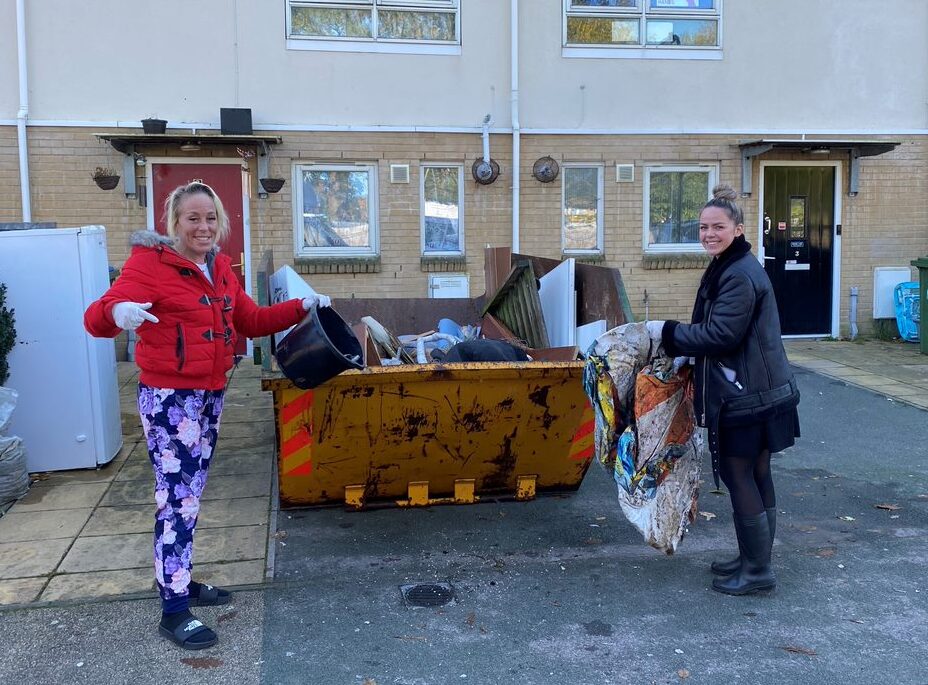 By Richard Blakeway, the Housing Ombudsman
By Richard Blakeway, the Housing Ombudsman
Recently I met with the board of a social landlord who asked what I thought about conditions in the private rented sector. For while the poor conditions in some of those homes provides no excuse for social landlords not to meet their own obligations, it exposes the uneven playing field of redress. Presently, private landlords can volunteer to join our ombudsman but few do, which means the vast majority of private tenants don’t have the same redress rights as social housing residents.
That could be about to change. The Renters (Reform) Bill is currently working its way through parliament, and landlords will be required to join a government-approved ombudsman.
The government has indicated this should be the Housing Ombudsman Service and have set out the strategic benefits of us providing redress for both social and private tenants.
This intention was welcomed by the shadow minister, and also by us.
I’ll come to why this is a very good thing to ensure a fairer rental market, not only for tenants but also landlords, including social landlords, in a moment. But, I hear some of you think, what does this mean for our existing work?
It’s a reasonable question and has been a key consideration for us when considering our role in the private rented sector.
“…it’s also important that redress routes come together, to avoid accountability being diluted and access impaired”
We’re absolutely clear that expanding into the PRS shouldn’t undermine or dilute our work in social housing. It’ll therefore be funded separately and delivered by a separate team, including the preparatory work.
But it’ll also bring benefits for existing members. We’re still operating from the same systems we had when we received a fraction of the complaints we do today, and had a fifth of the staff. Therefore, it’ll provide us with more opportunities to develop our systems, including for casework management and submitting evidence as well as automated casework updates, and to train, develop and retain colleagues. This will benefit everyone.
We’re uniquely placed to deliver one front door, one back office and one coherent approach to dispute resolution in the rental market. But in delivering a coherent approach to redress in the rental market, we don’t expect existing caseworkers to take on this work but would bring in new colleagues.
This coherent approach is crucial given the Landlord and Tenant Act doesn’t distinguish between tenures, alongside other key legislation like hazards, and this new legislation would also make the Decent Homes Standard universal.
So, as the policy landscape converges, it’s also important that redress routes come together, to avoid accountability being diluted and access impaired. There would be no sense for neighbours in the same building being sent different routes for the same problem. We already see this every day, with about one in five residents who reach us having an issue outside our jurisdiction because, for example, their landlord is private. This approach to unifying housing redress will also add much-needed coherence to an increasingly complex, and sometimes fragmented, regulatory environment.
These are points highlighted by others. The National Housing Federation rightly pointed out during the committee stages how, were a separate ombudsman to be created, those housing associations with private rented homes would have to join (at least) two ombudsmen. The Local Government Association pointed out the importance of coherence between redress and enforcement through councils – a critical point, given an ombudsman doesn’t operate in isolation. And legal experts pointed out the importance of coherence with the courts.
It’s the right time for the Housing Ombudsman to expand our offer redress to all renters. Our delivery of new powers under the Social Housing (Regulation) Act is well advanced, with the Complaint Handling Code consultation completed and wider orders to examine policy and practice already issued to several landlords. Every change will be in place potentially before the Renters (Reform) Bill receives Royal Assent.
The experience we have of recruiting and inducting new colleagues at pace – as well as being resilient in the face of unprecedented casework volumes – is also invaluable. At present, we complete an investigation about every 30 minutes. When our annual report is laid before parliament shortly, it’ll show we investigated more than half of cases within six months of them landing on our desk and we retain a relentless focus on timely adjudication.
“Everyone deserves a decent home, and residents and landlords need an effective, impartial and independent ombudsman”
That experience and know-how could be essential here, especially our work with smaller landlords, with 16% of our current members owning fewer than 10 homes.
The Renters (Reform) Bill is an expansive piece of legislation with many moving parts. The effectiveness of redress will depend on the implementation of the new landlord portal, the guidance around tenant-landlord relationships and the evolving role of the courts and councils. In developing our plans for redress, we’ll work with the courts and councils, and landlord and tenant groups as we design and implement them.
This collaboration brings us back to that boardroom where I was asked that question. The reason I was there was because I know an ombudsman isn’t a substitute for effective landlord-tenant relationships. It isn’t a surrogate for complaints handling.
That’s one reason why I’ve prioritised the introduction of our code and given landlords the tools to resolve disputes fairly and speedily themselves. This type of support would be key in the PRS, too. And while there are many good and committed private landlords, the problems of non-decent, ageing homes as well as poor complaint handling will be present as they are in social housing.
Everyone deserves a decent home, and residents and landlords need an effective, impartial and independent ombudsman. Residents and landlords are seeing the benefits in social housing to deliver fairness and support learning and the improvement of conditions. Now there’s a valuable opportunity to extend these benefits across the rental market.






















